|
“Good morning and welcome to St. Michael Catholic church. Before Mass begins, we invite you to take a moment to greet those around you.”
I was on vacation at the time I heard these words, and thus totally unfamiliar with the parish until I had searched for local Catholic churches. There wasn’t much choice compared to my options in a densely populated city, but I knew Mass was Mass—the same and just as important in the rural diocese I was visiting as it is in the Archdiocese of Washington (and the rest of the Universal Church). I was excited to experience another faith community as a visitor. After the cantor made the welcome announcement, the parishioners around me turned and exchanged greetings with their neighbors. While there were a number of familiar faces for them, mine was new. Their eyes lit up when they saw me. I appreciated the parishioner’s hospitality efforts, beginning with the first handshake and smile. As Mass began, I could not help but pick up on the small differences in the celebration of the liturgy: the church was smaller and rounder, there was a piano instead of an organ, the servers were past middle-age, and the priest liked to stroll up and down the aisle during his homily. While it was not exactly what I was used to, the actual worship of God and the spiritual nourishment of the faithful was no less authentic or beneficial. The Word of God was proclaimed in the readings and we received the real Body, Blood, Soul, and Divinity of our Lord Jesus Christ in the Eucharist. We sang hymns, exchanged a sign of peace, and participated in the usual liturgical responses, movements, and postures at the appropriate times. These experiences may very well be shared by anyone taking a vacation this summer or otherwise visiting another parish. The Mass transcends one’s location or liturgical preferences. It is ultimately the gathering and lifting of prayers of praise, petition, repentance, and thanksgiving to God Who blesses us with His grace and True Presence. In Her wisdom, the Church has laid down guidelines for the celebration of the liturgy that must be adhered to in order to be valid. Without them, the Mass would lose its focus on divine worship and partaking in the Sacred Mysteries. While different parishes and cultures may imbue a different spiritual character in the celebration of the sacraments, the Substance (God) remains the same to unite all the faithful, whoever and wherever they may be. This universality reflects that of the Church, instituted to proclaim Christ to all, especially those outside of His Body. My experience of welcome at this new church during my vacation reflected that very evangelical mission! One does not have to go far to invite another to share in the Sacred Mysteries—all are invited to enter and re-enter the liturgy, and to do so more deeply than before in order to draw more meaning and grace along one’s spiritual journey. After that morning’s Mass, the church hosted a hospitality breakfast during which I was continually greeted by other parishioners who expressed amazement that I found my way to join them in the Eucharist at such an early hour—and on a weekday! To some, it was refreshing to see not only a new face, but a young one. They were as happy to greet me and share their experiences as I was to be there and form new ones. Before leaving that church to continue on with the day, the members of the faithful drew strength from their reception of Jesus in the Eucharist and from each other in order to sustain them through the burdens and challenges of their lives. In welcoming newcomers to the Catholic Church, let us strive to extend the same heartfelt message as our Lord to the wearied disciples after His Passion: “Peace be with you!” Doing so will not only help others benefit from the graces and support offered at your home parish, but will also strengthen and enrich the life of the local church as it endeavors to minister to the world spreading the Gospel message. Question for Reflection: How does visiting different parishes deepen your understanding of the Mass? Have you ever benefitted from attending Mass in a different location or within a different culture?
0 Comments
On July 25th, we celebrate the feast day of St. James the Apostle. St. James and his brother John were the sons of Zebedee. Jesus referred to these brothers as the “Sons of Thunder,” most likely due to their penchant for rash, emotional reactions and decisions. St. James teaches us the importance of humility and of promptly responding to God’s call, regardless of the securities we may leave behind in doing so. He was the first apostle to die a martyr’s death. We can look to his zeal for following Christ and his courage in spreading the faith in difficult times as examples for our own spiritual lives. We remember from Scripture that St. James and St. John initially asked Jesus if they could be placed on either side of him in his heavenly kingdom. Jesus uses this as an opportunity to reiterate to the disciples the importance of servant leadership. Jesus responds, “You know that those who are recognized as rulers over the Gentiles lord it over them, and their great ones make their authority over them felt. But it shall not be so among you. Rather, whoever wishes to be great among you will be your servant. Whoever wishes to be first among you will be the slave of all. For the Son of Man did not come to be served but to serve and to give his life as a ransom for many.” (Mark 10:42-45) From this lesson and Jesus’ previous parable of The Workers in the Vineyard (Matthew 20:1-16), we learn that the faithful are invited to receive the ultimate reward of eternal life with our Father in heaven. Jesus reminds us that we shouldn’t get caught up in the earthly understanding of rankings, but can all share in the glory of God in heaven. We also learn from this example with St. James and St. John that serving others is how we are called to love our neighbors. As 1 Corinthians 13:3 says, “If I give away everything I own, and if I hand my body over so that I may boast but do not have love, I gain nothing.” Jesus asks us to rely on him and not on others’ recognition of our sacrifices. In the New Testament, we often hear of St. James mentioned with Sts. John and Peter. These three disciples were privileged to be present at many of the significant moments in Jesus’ ministry on earth, including the Transfiguration and Agony in the Garden. The Holy Spirit’s presence within the apostles at Pentecost was a turning point for St. James and the other disciples because it showed them the true nature of Jesus’ mission and the meaning of his sacrifice on the cross (Benedict XVI, General Audience, June 21, 2006). From there, James and the other apostles went out to all the nations, preaching Jesus and his Gospel message. James’ life after Pentecost symbolizes the pilgrimage of the Christian journey (Benedict XVI, General Audience, June 21, 2006). His journey is one of the reasons he is considered the patron saint of pilgrim travelers and was recognized as a patron saint of World Youth Day 2016. In fact, the path to Santiago de Compostela, where St. James is buried in northwestern Spain, was one of the most traveled pilgrim routes during Medieval times after Rome and Jerusalem. Many people continue to make this pilgrimage today and to seek the guidance of St. James. We can call upon him to protect us during our journeys and to intercede for us for our personal conversions of heart before, during, and after our travels. We are called to follow Jesus as St. James did, knowing that even through life’s difficulties, we are walking along God’s path for us together with Christ. Through the example of St. James the Apostle, we see that following Jesus can have its difficulties through persecution and other hardships, but that our eternal reward is life in heaven with him. St. James’ story encourages us to leave our comparisons to others behind, fully trust in God, and show enthusiasm for Jesus Christ even when it is difficult. Questions for Reflection: Have you ever embarked on a pilgrimage? How did it deepen your spirituality? What are some ways we might be called to grow in our humility as we practice servant leadership in following Christ? In 1986, Pope Saint John Paul II held the first World Youth Day in Rome following an outpouring of youth support in St. Peter’s Square on Palm Sunday in 1984. In the thirty-one years since, there have been fourteen international World Youth Days. The Saint John Paul II National Shrine in Washington, D.C. is seeking to continue the legacy of the pope’s initiative establishing a national World Youth Day by holding World Youth Day (WYD) Unite on July 22, 2017. WYD Unite is a festival of prayer, reflection, and fellowship that hopes to bring together young adults and young families in an experience of authentic communion, joy, and healing in Christ. While small young adult gatherings are important, there is something transformative about a large gathering of young people coming to together to worship and experience fellowship from across many dioceses in the United States. WYD Unite already has individuals from over 40 dioceses and 10 religious orders, as well as 5 Bishops attending! The day will include talks by Bishop Nelson Perez and Bishop Frank Caggiano, who will reflect upon the theme "The Mighty One Has Done Great Things for Me and Holy is His Name.” In addition to these bishops, there will also be a Mass celebrated by Cardinal Donald Wuerl, Archbishop of Washington, and a pilgrimage unity walk, under the patronage of Our Lady Undoer of Knots, led by Bishop Mark Brennan. This walk will be a special moment to offer up our own “knots” or difficulties to the Lord and we are pleased to have received permission to have the official image of Our Lady Undoer of Knots from the World Meeting of Families. This beautiful image was blessed and prayed in front of by our Holy Father Pope Francis. In the evening, there will also be dinner, a concert by Tony Melendez, lawn games, and an outdoor, candlelight Eucharistic Adoration with music provided by Audrey Assad. At the 2002 World Youth Day held in Toronto, St. John Paul II said, “I imagined a powerful moment in which the young people of the world could meet Christ, who is eternally young, and could learn from him how to be bearers of the Gospel to other young people.” WYD Unite is an opportunity for young people in the area to connect with each other and experience Christ’s healing while challenging them to commit to living in some new way back in their home parishes and dioceses—thus fully realizing St. John Paul II’s plan for WYD. Last Summer, the Catholic Apostolate Center was proud to assist the USCCB World Youth Day Office with its efforts for World Youth Day 2016. Additionally, the Catholic Apostolate Center was honored to be a Platinum Sponsor of Krakow in the Capital, which drew over 1,000 young adults in the DC-area to participate locally in World Youth Day 2016. This year, we are happy to collaborate with the St. John Paul II National Shrine to host WYD Unite. This second event of its kind will be held at the Washington, D.C. Shrine on July 22, 2017. For more information about WYD Unite, click here.
Recently, I experienced the end of a long and stressful month filled with travel. I was in and out of airports and cabs while working late on wonderful projects with talented people. Although I enjoyed the opportunity to share my time and gifts with others, I was exhausted physically and spiritually. The constant movement made maintaining a meaningful prayer life difficult. After coming home from my travels, I have worked hard to get back on track with my personal prayer and grow deeper in my prayer life. As I reflected on my own struggles, I began to think of ways to make a prayer routine easier. Here are some tips I came up with. I hope they help and work for you as well! Disconnect: We live in the 21st century. It is very difficult to totally shut off from the world. We are constantly being pulled away from prayer by the plethora of available information and the digital world. The majority of us are connected through some form (and, more likely, many forms) of technology and social media. Challenging ourselves to step away from the noise is important for cultivating a healthy prayer life. Even Jesus had to take time away from everyday life to pray (see Luke 5:16, Matthew 4:1, Matthew 14:13). Let us learn from Jesus and remove ourselves from the world from time to time, maybe for a weekend retreat or just for a few moments. Make the effort to be alone with Christ. Be Intentional: How often do we squeeze a daily prayer in at the end of a long day? Is prayer usually an afterthought or the core of our spiritual life? Our prayer life can be so much more fruitful if we intentionally set aside some time each day for the Lord. I have only been married for 2 years, but something tells me if I only spoke to my wife a few moments at the end of the day, our marriage wouldn’t be as strong as if we intentionally set aside time to be with each other. Look at your schedule to see where and when you can best include some time for prayer and reflection. That time will become invaluable as you grow in your relationship with Christ. Serve: Sometimes we only think of prayer, or speaking with God, as attending Mass or going to Adoration. Although those are fantastic places to start and continue meeting the Lord, we can also find Christ in our encounters with our brothers and sisters. Look for opportunities to serve at your local parish or diocese. Through these experiences, we have the opportunity to connect with Christ in a new way by helping others. Once a service project or event is completed, do not just put that experience up on a shelf. Reflect on what that experience meant. You will not only learn more about yourself, but also about how Jesus may be calling you to grow in your faith journey. Having a good, meaningful, and joyous prayer life isn’t something unattainable, reserved only for priests and consecrated religious. It is something that we not only we long for, but that is also willed by God. The Lord wants to be in an active relationship with us. Let us be open and active in keeping God in our everyday lives by cultivating a regular prayer life. Questions for Reflection: What are some ways you can incorporate prayer into your daily routine? Is prayer something you squeeze in or is it integral to your daily life? For more information on developing your spiritual life, we invite you to visit our Prayer and Catechesis Resources page by clicking here.
I am often struck by the Gospel call and invitation to have no fear. It seems liberating and intriguing, but often unrealistic as I look around at the situation of the world or confront my own littleness. As a wife and mother, the quietness or anonymity of my days can sometimes seem mundane or insignificant in a world marked with suffering. Then Christ’s words echo in my heart, “Be not afraid!” Be not afraid. So powerful is this message that it permeates Sacred Scripture. Pope St. John Paul II even began his pontificate with it. “Do not be afraid. Open wide the doors for Christ,” he said. “Do not be afraid to welcome Christ and accept his power.” A large portion of my adolescence was dominated by fear: the fear of rejection, of not fitting in, of failure. I had not opened the door to Christ and instead relied on my own devices rather than accepting his power, as the pope suggested. I found that fear is enslaving. This changed with various experiences throughout my college years. I remember being on a retreat, as a senior, where we were asked to meditate on the Annunciation and the Visitation. I walked to a hill overlooking the mountains of Northern California and began to re-read and reflect upon a passage I had heard countless times. As a spunky middle child, I had never much affiliated with the Blessed Virgin Mary. She seemed too pristine for my rambunctious, sporty, and mischievous personality. I couldn't relate. This particular reading of Mary’s assent to God’s plan, however, was different. No longer did I see a dainty girl who only radiated perfection, but a strong and bold woman who accepted God’s will without fear. I read her response of surrender, “Let it be done to me according to your word,” not as a feeble “OK, sure, whatever you say, Lord” but as a “Yes, Lord! Together, let’s do this!” Mary had opened wide the door for Christ. Her response was whole-hearted, even joyful. She was not afraid to welcome Christ and accept his power. “What a bold answer,” I remember thinking. What freedom! Up to that point in my life, I couldn’t recall ever responding to God in that way. I wanted what Mary had, a life without fear. Moments later, I repeated those immortal words, having finally embraced them as my own, “May it be done to me according to your word.” My life has never been the same since. Mary’s experience of trust in the Lord is what we are all invited to. Her lack of fear is completely possible for Christ’s followers. This does not mean lack of uncertainty, lack of stress, lack of hard choices or suffering. It means overarching faith and trust in God’s plan of goodness over our own. Mary did not have all the answers. In fact, she asked the angel Gabriel, “How can this be?” as he shared God’s plan of salvation. I can imagine Mary repeating this question years later in the silent recesses of her heart throughout Christ’s torture and crucifixion, “Lord, how can this be?” This is a question I often find myself asking throughout my day. How can this war be going on? How can this life be ending? How can this poverty be? God typically answers our questions not with a detailed explanation of his plan, but with himself. “Take courage, it is I; do not be afraid,” he tells his shaken disciples as he walks on water during the storm. In doing so, he does not belittle or ignore our questions, but redirects them. God alone suffices. It is for this reason that Pope John Paul II began his papacy by inviting us to “welcome Christ and accept his power” over our own. It is when we turn inward, relying on our own strength or power, that we become paralyzed by fear and uncertainty. It is when we turn inward that we forget who we are. Pope John Paul II poignantly stated, “So often today man does not know what is within him, in the depths of his mind and heart. So often he is uncertain about the meaning of his life on this earth. He is assailed by doubt, a doubt which turns into despair.” How many people do you know for whom these words are true? Pope John Paul II’s prophetic words strike at the heart of many of the issues of our society, issues that we ourselves face daily. Mary did not know this fear, this uncertainty, this despair. She never forgot who she was in God’s eyes, for she never knew herself apart from him. As we continue to live each day in our various jobs, ministries, and vocations, let us look to Mary as our model of liberation—a model of a life of freedom rooted in God, a life without paralyzing fear. May we repeat, until it becomes the prayer of our heart, “let it be done unto me according to your word.” May we open wide the doors for Christ in order to go out, as Mary modeled for us in the Visitation, to our fearful and suffering world, bringing the light and love of Christ to all we encounter. Be not afraid! Question for Reflection: What fears keep you from placing your trust fully in God? This week, ask Mary to help you say “let it be done to me according to your word.” In 1964, the Second Vatican Council affirmed in the document Lumen Gentium, “that all the faithful of Christ of whatever rank or status, are called to the fullness of the Christian life and to the perfection of charity.” The Catholic Apostolate Center continues to promote this truth in the 21st century by providing active Catholics the tools and resources to share Christ’s loving message of salvation. In this way, the Center’s mission focuses on reviving faith, rekindling charity, and forming apostles who give witness to this fullness of the Christian life by embracing their baptismal call. Father Frank S. Donio, S.A.C., Director of the Center, explains, “The Catholic Apostolate Center is rooted in the spirituality of St. Vincent Pallotti, who believed that all are called to be apostles and to be co-responsible for the mission of Christ and his Church.” Founded in 2011 as a ministry of the Society of the Catholic Apostolate (Pallottines),Immaculate Conception Province, the Catholic Apostolate Center develops resources that the faithful, particularly those in ministry, can use to aid in their own evangelization efforts. The Center responds to the current needs of the Church through developing, in collaboration with dioceses and other institutions and organizations, formation programs for the New Evangelization. It assists pastoral leaders in deepening collaboration with one another and provides formation opportunities for members and collaborators of the Union of Catholic Apostolate. The Center accomplishes this bold mission through online resource pages, webinars, podcasts, and blogs, as well as through the partnerships with organizations like the United States Conference of Catholic Bishops (USCCB), the Archdiocese of Washington, Catholic Volunteer Network, and St. Joseph’s College of Maine, among others. Furthermore, they host seminars, webinars, and presentations as well as providing consulting services. “While we do produce our own material, and have a large amount of no-cost digital resources, the Center collaborates with many national and international Catholic organizations, dioceses, and the USCCB on a variety of projects to assist active Catholics in living as missionary disciples,” Donio said. In the spirit of St. Vincent Pallotti, the Center equips Catholics to “go out” empowered with the resources and knowledge to propagate the faith for the New Evangelization. St. Vincent Pallotti founded the Union of Catholic Apostolate, an association to revive faith and rekindle charity among Catholics and propagate the faith to all. St. Vincent Pallotti encouraged collaboration among the clergy, religious, and the laity in the 1800s at time in history when many thought the work of the Church should be left to priests and religious. The Catholic Apostolate Center looks to the life of St. Vincent Pallotti for inspiration as it strives to form collaborative relationships with more organizations, further develop its formation resources, and ultimately, empower all the faithful - clergy and lay - to live out their baptismal call. The Catholic Apostolate Center specifically entrusts its work of forming apostles to Mary, “Queen of Apostles” because of her invaluable role in building the early church and encouraging the first apostles. The Center looks to the Blessed Mother as the perfect model of discipleship, apostolic work, and charity as we strive to lead Christ’s followers closer to her Son. Formation leads to action - this is a core belief that influences the work of the Center. Throughout his papacy, Pope Francis has reminded us to be comprised of both action and word, to encourage a spirit of accompaniment and encounter. “Go out,” he says. “Go out and share your testimony, go out and interact with your brothers, go out and share, go out and ask.” By forming the laity to “go out,” the Catholic Apostolate Center hopes to empower the Body of Christ to collaboratively carry out the mission entrusted to the Church by Jesus Christ. This article was originally published at CruxNow.com and can be viewed here. Kate Fowler is the Blog Editor for the Catholic Apostolate Center.
Chris Pierno is the Advancement and Marketing Manager for the Catholic Apostolate Center. |
Details
Archives
July 2024
Categories
All
|
About |
Media |
© COPYRIGHT 2024 | ALL RIGHTS RESERVED

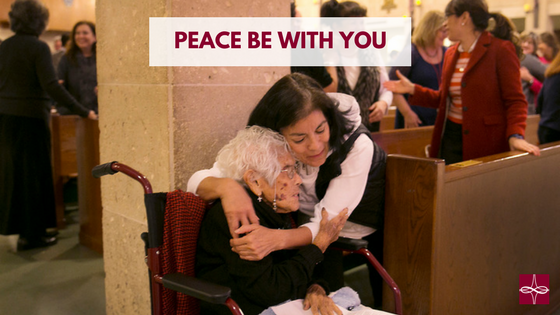

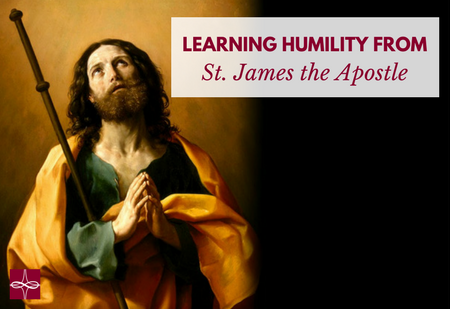




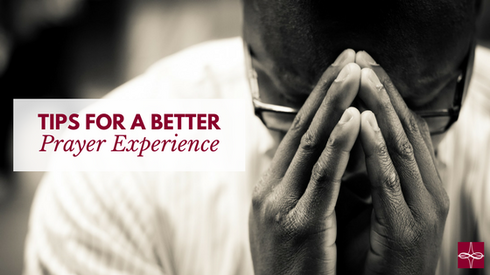

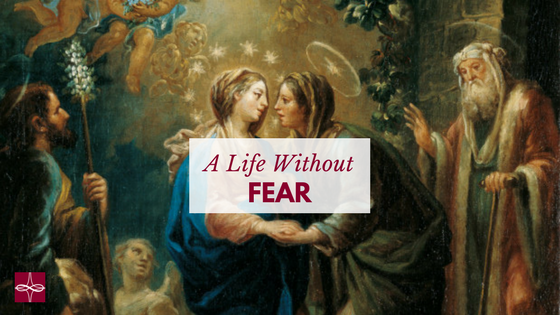
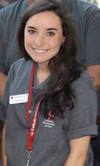
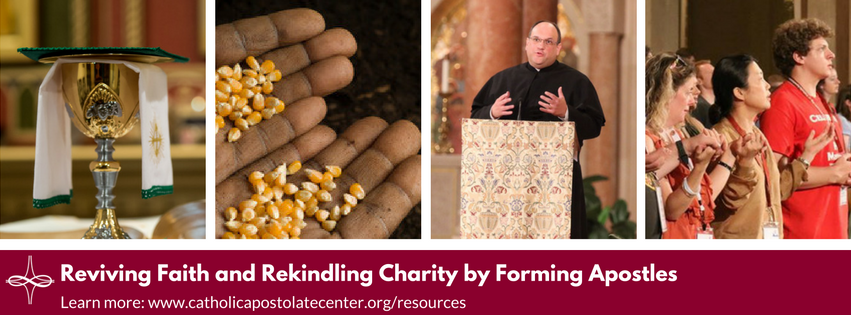
 RSS Feed
RSS Feed